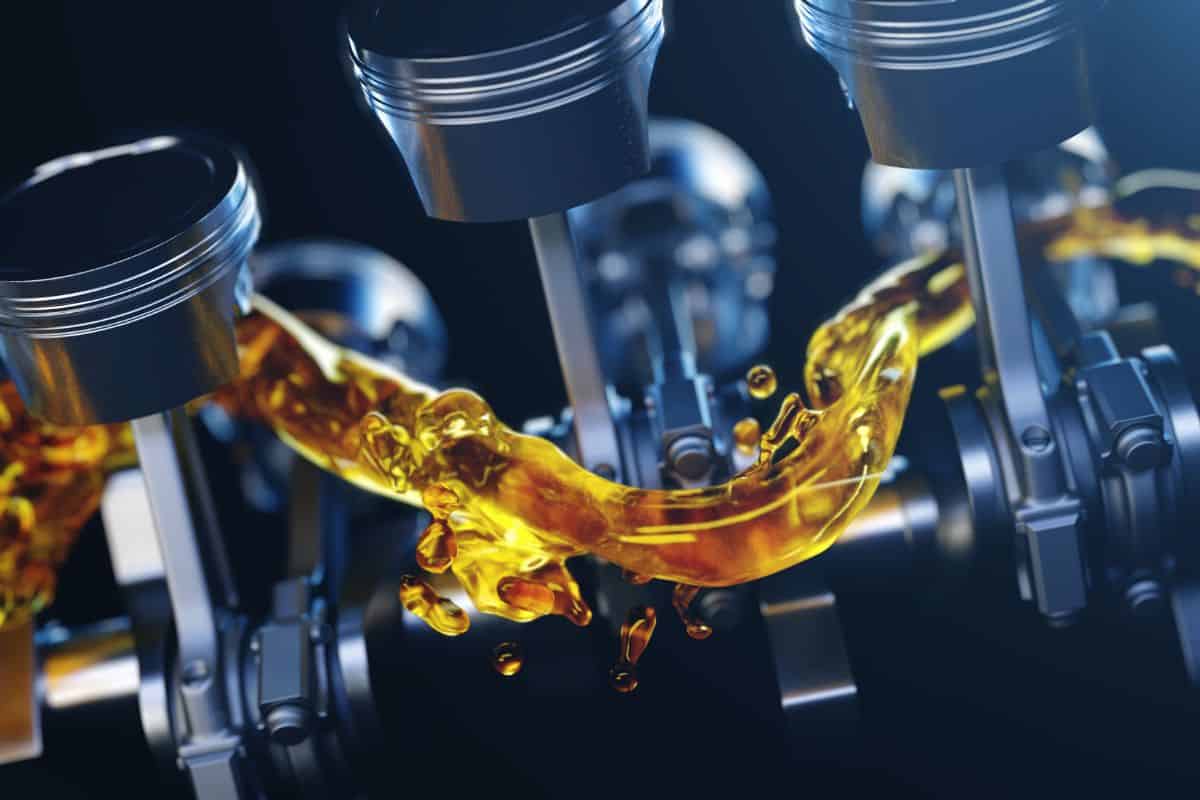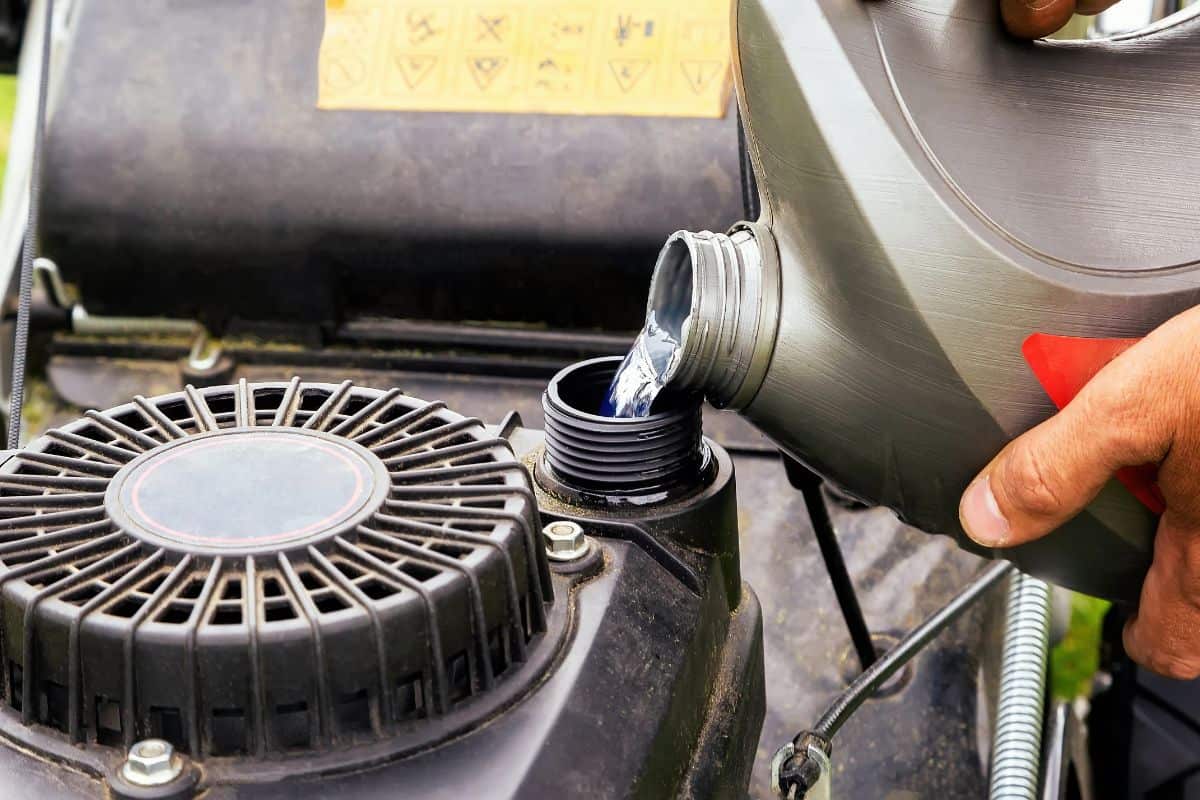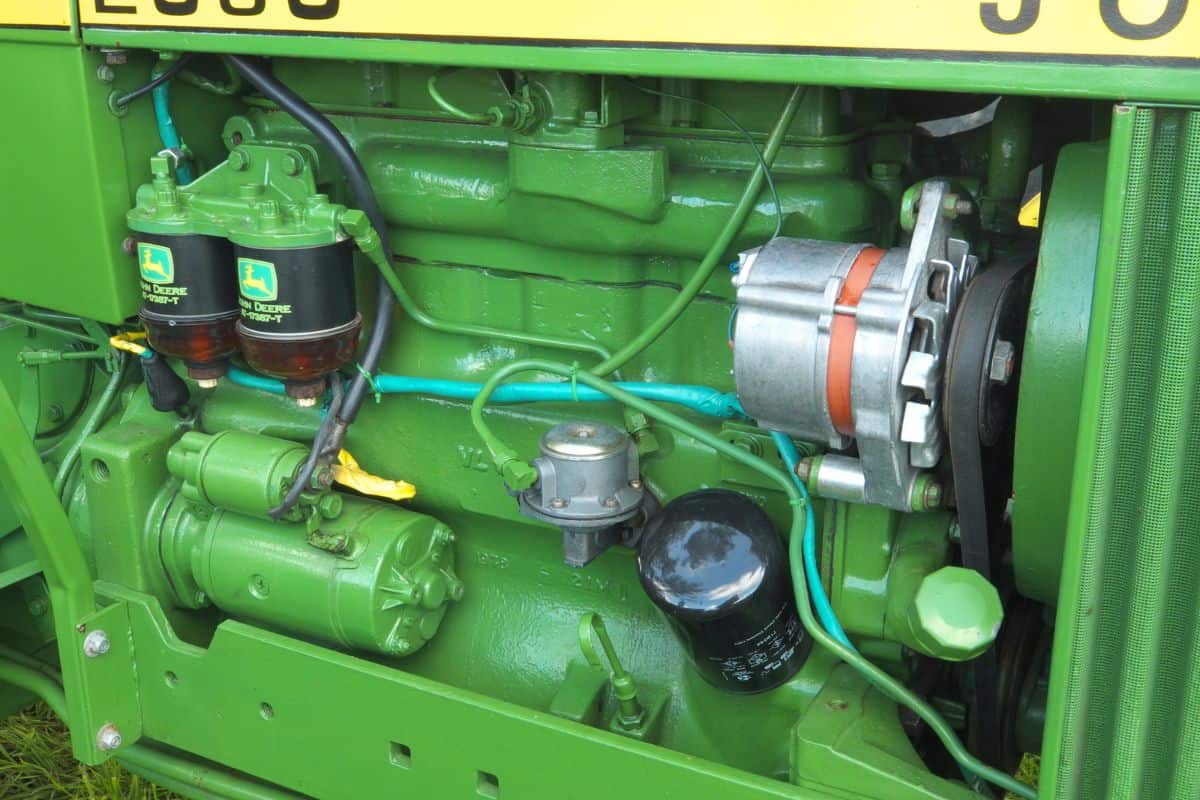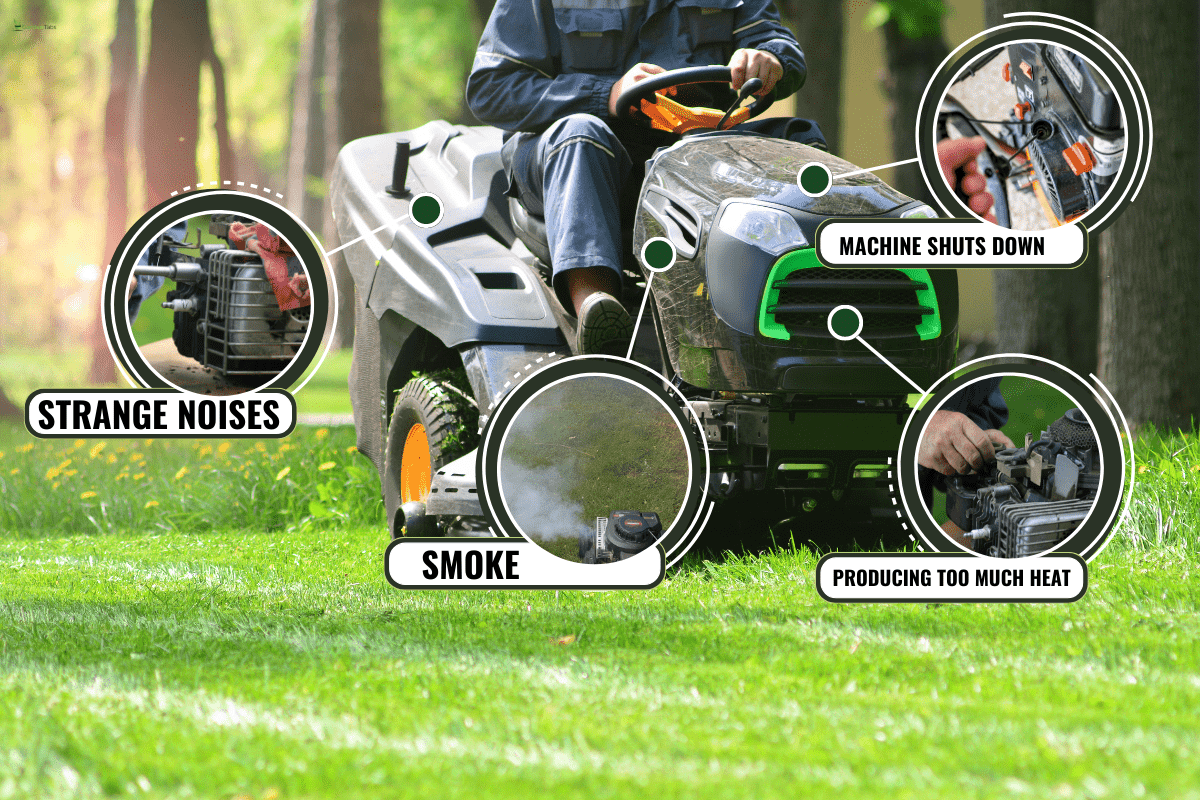For optimum performance of your gardening equipment, you need to use the appropriate oil for the engine or transmission system. With much debate about John Deere oil and regular oil, which one should you use, and are there any differences? We're here to help you out!
According to employees who have worked for John Deere company, there are differences between John Deere oil and regular oil. Based on tests done and the performance of the oil, the differences are:
- John Deere oil is cleaner
- John Deere oil has less oxidation
- John Deere oil has less wear
Keep reading to learn the differences between John Deere oil and regular oil. Included is a discussion on what to look for when choosing a high-quality oil. In addition, we have explained the signs to watch out for that show you need to add more oil.
The Differences Between John Deere Oil And Regular Oil

There are many oils on the market today; thus, it can be challenging to choose one. Are there oils better than others? This has been an ongoing debate and discussion, perhaps for decades.
John Deere oil is considered to have special ingredients that make it different from other oils. And, of course, to stay ahead of the competition, they are most likely not ready to let out their secret formula.
There are differences according to what John Deere employees have experienced while working. According to them, the following are the differences between John Deere oil and regular oil:
John Deere Oil Is Cleaner With Less Oxidation And Less Wear
John Deere produces various types of engine oils with different grade levels. Examples are Torq-Gard, Plus 50 II, and Turf Guard.
These and the regular oils were tested for 500 hours under high temperatures. The goal was to compare the oxidation levels and the extent of wear and tear of the machine parts tested.
The result showed that John Deere oil is cleaner with less discoloration. The machine parts tested had less wear and tear.
See this hydraulic oil on Amazon.
Another test was done using John Deere's Low-Viscosity Hy-Guard, and Hy-Guard transmission oils. They were subjected to a 50-hour test at very high loads and slow speeds.
The results showed less oxidation and wear and tear with John Deere oil when compared with regular oil. This means that the former is considered to be cleaner than the latter.
The video below explains the tests above and the comparison between John Deere and regular oil:
Do You Have To Use John Deere Oil?

Manufacturers of John Deere tractors, mowers, and other machines, recommend that you use John Deere oil. You can use this oil on other machine brands if the viscosity complies with the manufacturer's specifications.
There are a lot of arguments on which is the better oil. Instead of settling on any oil, it's best to ask your dealer or the manufacturer.
They are always working towards improving their products. So, based on the history of their research and discoveries, they are in a better position to advise you.
However, in a nutshell, you want to use the highest quality oil.
The following information can guide you on what to look out for when deciding which oil to use:
See this engine oil on Amazon.
Certification From Recognized Petroleum Organizations
Look for oils that have certifications from recognized petroleum organizations. These have been tested and proven to meet engine oil standards.
One such organization is the American Petroleum Institute (API).
Oil Viscosity Index
The climate in your area determines the viscosity index of the oil to use. This means the air temperatures determine the viscosity level. The viscosity is lower when the temperatures are high, meaning the oil is thinner. The reverse is true.
For your machine to operate optimally, you need an oil with the correct viscosity level. For example, you may need to use an oil with a high viscosity during winter so that it flows easily in the engine and hydraulic system.
You also need thick oil to reduce the wear and tear of machine parts that rub against each other.
Oil Additives
Manufacturers add certain chemical compounds known as additives to improve the overall performance of the oil. These compounds vary among the different oils.
This is why it is essential to look for the appropriate oil that contains additives that fit your engine's requirements.
Some of the benefits of these additives to the engine or hydraulic oil are:
Reduces Buildup Of Sludge
Oil degrades with time, forming sludge. It's a byproduct of the chemical reactions as the oil moves in the engine and transmission system.
Sludge can block the fuel passageway creating problems in your machine. An additive reduces sludge formation, maintaining a cleaner engine and fuel system.
Reduces Oxidation
Oxidation happens at all times, but mostly when the temperatures are high. It can also occur when water or contaminants find their way into the oil.
Oxidation causes the formation of rust, which leads to the deterioration of the engine parts, which can finally get damaged.
However, the presence of additives in the oil prevents the formation of rust on the machine parts.
Removes Bubbles From Oil
The additives added to the oil act as an anti-foam agent. They reduce the bubbles in the oil. It does this by weakening the bubble's wall, bursting it quickly. It lessens the oxidation levels.
Can You Use Synthetic Oil In A John Deere?

Synthetic oils are designed to be effective in all temperatures without adding additives. Their consistency remains the same despite the temperature changes in the environment.
You can use synthetic oil in a John Deere engine or transmission, provided the weight of the oil or viscosity level is as per your manual.
How Often Should You Change The Oil In A Mower Or Tractor?

Check the instructions in your manual to know when to change the oil in your lawn mower or tractor. Most manufacturers of these machines recommend changing the oil after every six months.
For a John Deere lawn mower, you need to change the oil every 50 hours.
Also, before using your tractor again, drain the previous oil, and add new oil. If you stay without using your tractor or mower, residue will form in the oil.
This blocks the fuel pathway, leading to the deterioration of the fuel system and may damage some components.
Changing or adding new oil, an oil funnel should come in handy. It enables you to perform the task efficiently, with less wastage, drips, and mess in your work area.
Check out this oil funnel on Amazon.
Signs You Need To Top Up Engine Oil

In addition to changing the oil, you must add more when the oil levels are low. Some of the signs to show you need to top up the oil include:
Strange Noises
Turn it off immediately when you switch on your mower and hear strange sounds like the engine is knocking or sputtering. The noise can be due to a low level of oil or, in a worse case, no oil.
Running an engine without oil can cause damage to it.
Smoke
If you see smoking coming from your mower, the engine parts heat up until they produce smoke. Check if there are any leaks and seal them.
Producing Too Much Heat
If your mower produces too much heat, you have been driving it with little or no oil. The heat produced is due to the parts in the engine breaking down.
This means there is a high chance some parts have already started melting.
Machine Shuts Down
If your mower shuts down suddenly, you need to check if it's because it does not have oil or due to another problem.
The most likely cause for this scenario is that you ignored all the warning signs until the engine parts could not take it anymore.
As a result, you may never use your mower again because the engine will have knocked. If the problem is due to something else, then it might not be that serious.
To Wrap Up
There are different oils available, and you can be confused about which one to use. There have been debates about which oil is better. In this post, we have focused on the differences between John Deere oil and regular oil.
The results are based on what the employees of John Deere company have observed. They claim their oil is cleaner, has less oxidation, and has less wear than regular oils.
With that in mind, it is essential to use high-quality oil. A guide was included on what to look out for. And lastly, it's crucial to change the oil regularly and to top up when the levels are low.
Made it to the end? Check out these helpful related articles below:



